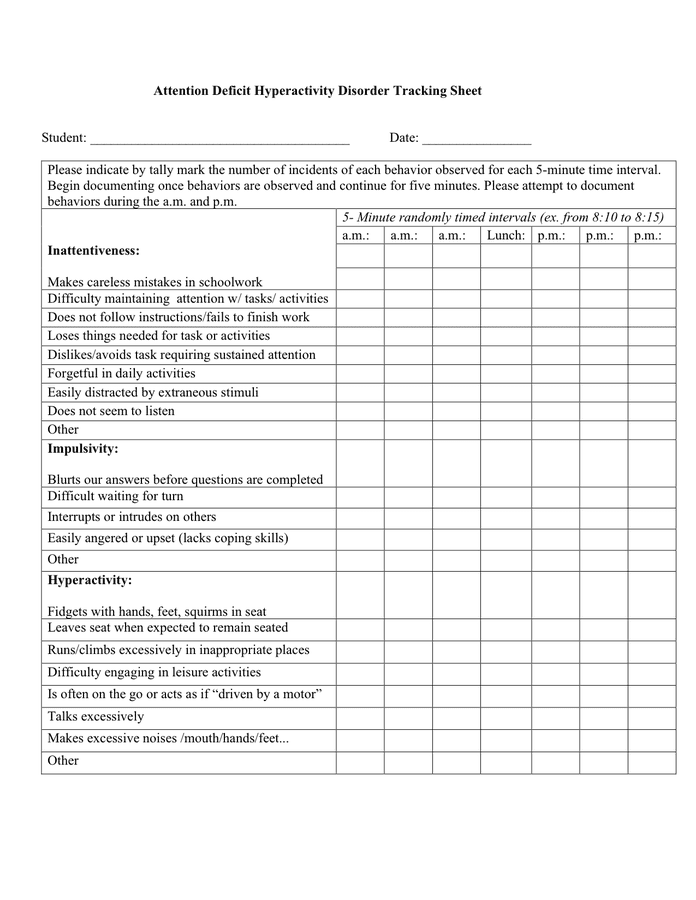Inside Our ADHD Minds: Navigating Daily Life With Attention Deficit Hyperactivity Disorder

Table of Contents
Understanding the Nuances of ADHD
ADHD isn't simply "being distracted"—it's a complex neurobiological condition impacting brain function. Understanding its different presentations and co-occurring conditions is crucial for effective management.
Common ADHD Symptoms and Their Impact
ADHD manifests in various ways. The three primary presentations are:
- Inattentive: Difficulty focusing, easily distracted, forgetful, struggling to follow instructions, disorganized. This can lead to missed deadlines at work, poor academic performance, and difficulty maintaining relationships.
- Hyperactive/Impulsive: Fidgeting, restlessness, excessive talking, interrupting others, difficulty waiting their turn. This can lead to social difficulties, accidental injuries, and conflicts with authority figures.
- Combined: Individuals exhibiting symptoms of both inattentive and hyperactive/impulsive types.
These symptoms significantly impact daily life. For example, difficulty focusing can make completing tasks challenging, while impulsivity can lead to regrettable decisions. The neurobiological basis involves differences in brain structure and function, particularly in areas related to attention and executive function.
ADHD and Co-occurring Conditions
Many individuals with ADHD also experience co-occurring conditions, significantly impacting their lives. These frequently include:
- Anxiety: Excessive worry, nervousness, and fear.
- Depression: Persistent sadness, loss of interest, and feelings of hopelessness.
- Learning disabilities: Difficulties with reading, writing, or math.
- Oppositional Defiant Disorder (ODD) or Conduct Disorder (CD): Defiant behavior, aggression, and rule-breaking.
These co-occurring conditions can exacerbate ADHD symptoms and complicate management. For instance, anxiety can worsen focus issues, while depression can decrease motivation. Comprehensive diagnosis and treatment addressing all conditions are crucial.
Strategies for Managing ADHD in Daily Life
Effective management involves proactive strategies targeting specific ADHD challenges.
Time Management and Organization Techniques
Improving organization and time management is paramount:
- Time blocking: Scheduling specific times for tasks.
- Prioritizing tasks: Focusing on the most important tasks first.
- Using planners and apps: Leveraging technology for reminders and organization.
- Breaking down large tasks: Dividing overwhelming projects into smaller, manageable steps.
- Setting realistic goals and expectations: Avoiding overcommitment and burnout.
- External reminders: Using alarms, notes, and other visual cues.
- Support systems: Enlisting help from family, friends, or colleagues.
Improving Focus and Concentration
Enhancing focus requires a multi-pronged approach:
- Mindfulness exercises: Practicing mindfulness to improve attention and reduce impulsivity.
- Minimizing distractions: Creating a quiet and organized workspace.
- Regular breaks: Taking short breaks to avoid mental fatigue.
- Physical activity: Exercise improves focus and reduces hyperactivity.
- Creating a structured environment: Establishing routines and predictable schedules.
- Medication and therapy: Consulting a healthcare professional about potential medication or therapy options.
Building Strong Relationships and Communication Skills
ADHD can significantly impact relationships; however, proactive communication strategies can help:
- Active listening: Paying close attention to what others are saying.
- Clear and concise communication: Expressing thoughts and feelings clearly and directly.
- Expressing needs effectively: Communicating needs and boundaries assertively.
- Open communication: Creating a safe space for honest and open dialogue.
- Seeking support: Talking to a therapist or counselor about relationship challenges.
Seeking Professional Help and Support for ADHD
Professional guidance is essential for diagnosis and effective management.
Diagnosis and Treatment Options
Diagnosis typically involves a comprehensive evaluation by a healthcare professional:
- Assessments and evaluations: Including behavioral observations, interviews, and psychological testing.
- Treatment options: Medication (stimulants or non-stimulants), therapy (cognitive behavioral therapy, behavioral therapy), and educational interventions.
- Multi-faceted approach: Combining different treatments for optimal results.
Finding Support Groups and Resources
Connecting with others who understand the challenges of ADHD is invaluable:
- Support groups: CHADD (Children and Adults with Attention-Deficit/Hyperactivity Disorder) and other organizations offer support groups and resources.
- Online communities: Numerous online forums and communities provide support and information.
- Educational materials: Books, websites, and articles offer insights into ADHD management.
Conclusion:
Navigating daily life with ADHD requires understanding its complexities, utilizing effective management strategies, and seeking professional support. From time management techniques and focus-enhancing strategies to building strong relationships and seeking professional help, numerous avenues exist to improve quality of life. By embracing these strategies and connecting with others, individuals with ADHD can lead fulfilling and successful lives. Start your journey toward effectively managing your ADHD today. Learn more about ADHD resources and take control of your life with these ADHD strategies. Explore the possibilities of living a fulfilling life with ADHD.

Featured Posts
-
 Cooper Flaggs Nba Future Predicting The Teams Most Likely To Draft Him First
May 13, 2025
Cooper Flaggs Nba Future Predicting The Teams Most Likely To Draft Him First
May 13, 2025 -
 Schoduvel 2025 In Braunschweig Alle Infos Zum Tv Und Livestream
May 13, 2025
Schoduvel 2025 In Braunschweig Alle Infos Zum Tv Und Livestream
May 13, 2025 -
 Southern California Braces For Mini Heat Wave This Weekend
May 13, 2025
Southern California Braces For Mini Heat Wave This Weekend
May 13, 2025 -
 Sabalenkas Controversial Stuttgart Victory A Photos Role In The Dispute
May 13, 2025
Sabalenkas Controversial Stuttgart Victory A Photos Role In The Dispute
May 13, 2025 -
 Edan Alexanders Father Pleads For Us Intervention Believes Son Still Alive
May 13, 2025
Edan Alexanders Father Pleads For Us Intervention Believes Son Still Alive
May 13, 2025
